Has Scottish politics changed since 2014 referendum?
- Published
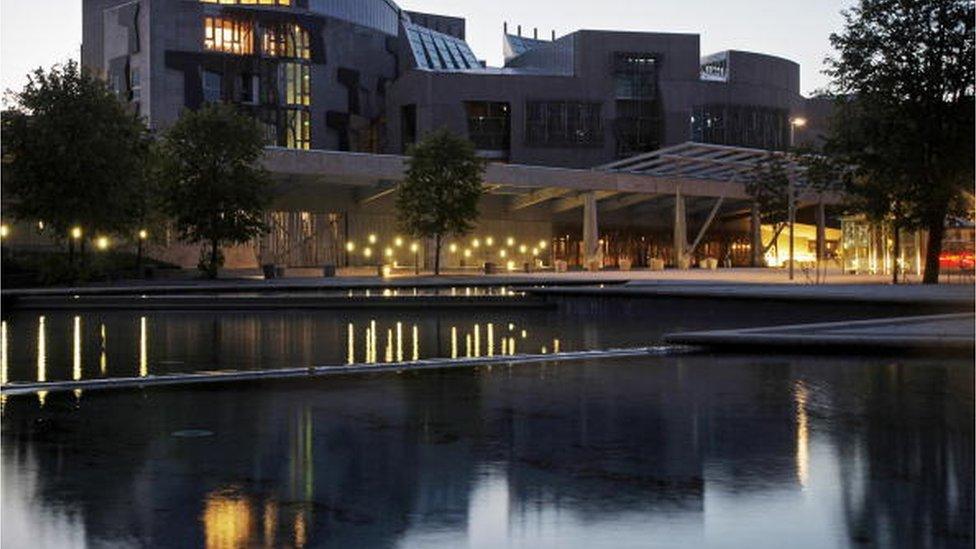
The independence referendum is the will-o'-the-wisp of the Scottish election campaign. It's there, and, then, it isn't. The last one hangs over this campaign - but the next one is a mirage.
This is the conundrum that has troubled all the parties in the campaign for the new parliament at Holyrood.
It was natural in the BBC-hosted leaders' debate on Sunday that referendum talk should produce fireworks - for both the Conservatives and the SNP: that's the argument their core vote likes to hear. But it's not been the talk in the streets and on the doorsteps.
The truth is Scotland has remained a divided country since the 2014 referendum saw the independence option rejected, by a margin of 55% to 45% on an 85% turnout. And this election has felt like a prelude to the next phase of the constitutional debate, although separate from it.
A Scottish minister said to me the other night: "It's the oddest election I've ever known."
Start with the changes to the parliament. It's much more powerful - crucially, having the power to raise much more of the money the Scottish government spends.
Therefore, the headline arguments in the campaign have been about taxes and spending, the staple diet of any election.
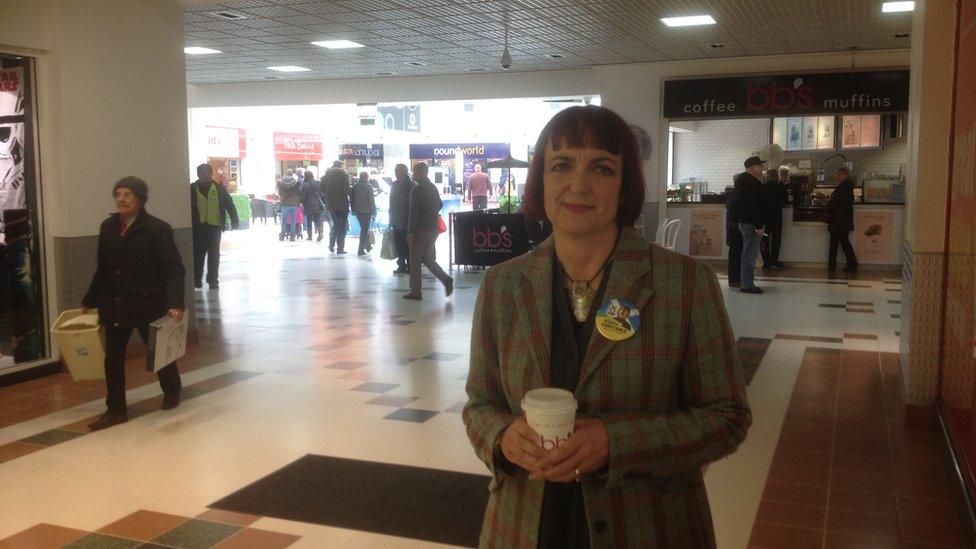
Education Secretary Angela Constance, the SNP candidate in Almond Valley, says the government, if re-elected, will invest an extra £750m in schools
The SNP has proposed modest tax changes, Labour a straightforward rise in income tax rates that would raise more.
The SNP says it's going to challenge "austerity" from London with responsible fiscal policy, Labour that the government in power in Edinburgh since 1997 isn't doing enough and needs more revenue.
But as I discovered in the Almond Valley constituency, west of Edinburgh, that debate doesn't seemed to have shifted opinion.
All the polls suggest the SNP's dominant position - established in the 2015 general election, when they won 56 of the 59 Scottish Westminster seats - will be reflected in the Holyrood results.
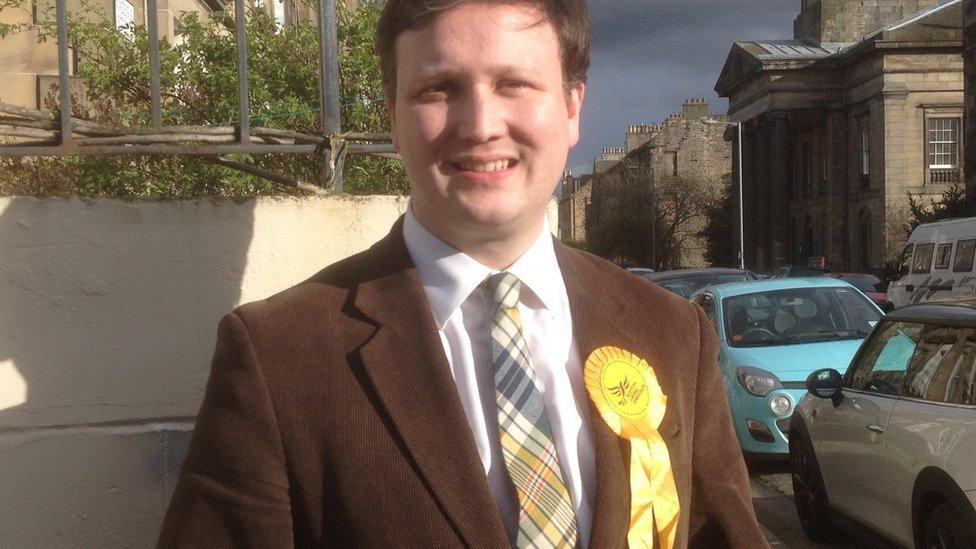
Liberal Democrat candidate Charles Dundas argues for higher taxes for a ring-fenced fund for schools
The opposition parties are appealing for votes to make them a better opposition: hardly an enticing campaign pledge.
How bad could it get for Scottish Labour?
The 30-second manifesto pitches, external
Education Secretary Angela Constance, the SNP candidate in Almond Valley, says the government, if re-elected, will invest an extra £750m in schools.
Liberal Democrat candidate Charles Dundas argues for higher taxes for a ring-fenced fund for schools.
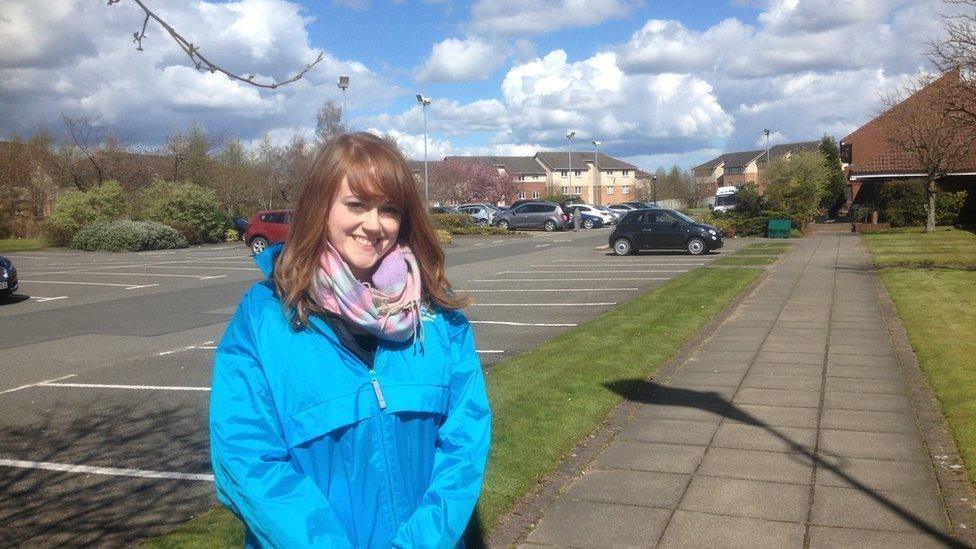
Conservative Stephanie Smith says a better administration would make tax rises unnecessary
But hanging over all these debates - and, to be frank, they don't seem to have moved the Scottish electorate in these past weeks - is the memory of the referendum and the question of whether there will be another one.
Nicola Sturgeon uses the word "patience" when she tells her supporters she does expect an independent country in her time as first minister; her opponents accuse her of being willing to press the button sooner than she will admit.
Tartan elephant in the room
So it is a strange campaign, characterised by important financial and economic arguments that sometimes feel as if they're avoiding the point. But is there a tartan elephant in the room, or not?
Ms Sturgeon is, by instinct, a cautious politician. Her party, though it is sustained by a vibrant core of members who want independence as soon as they can get it, has some quite conservative strands, and she knows it.
A "leave" vote in the EU referendum might force her hand, because it would be hard to resist party pressure to ask the parliament to support a second referendum, but the smart money suggests she would rather avoid that.
And the most curious aspect of this election is that it's not really about the SNP at all.
Labour is still stuck in a wretched rut - humiliated in the general election, on its third leader in as many years, and privately fearful about tomorrow's results.
The Conservatives, on the other hand, still on just under 20% in the polls, have seriously been tempted by the thought the unbelievable might happen: that they could surpass Labour and become the official opposition.
Most party people, pollsters and observers who know the scene well, think that, although this is not the fantasy it would have seemed a year ago, it is hugely unlikely. But it's spoken about in Labour circles. Say no more.
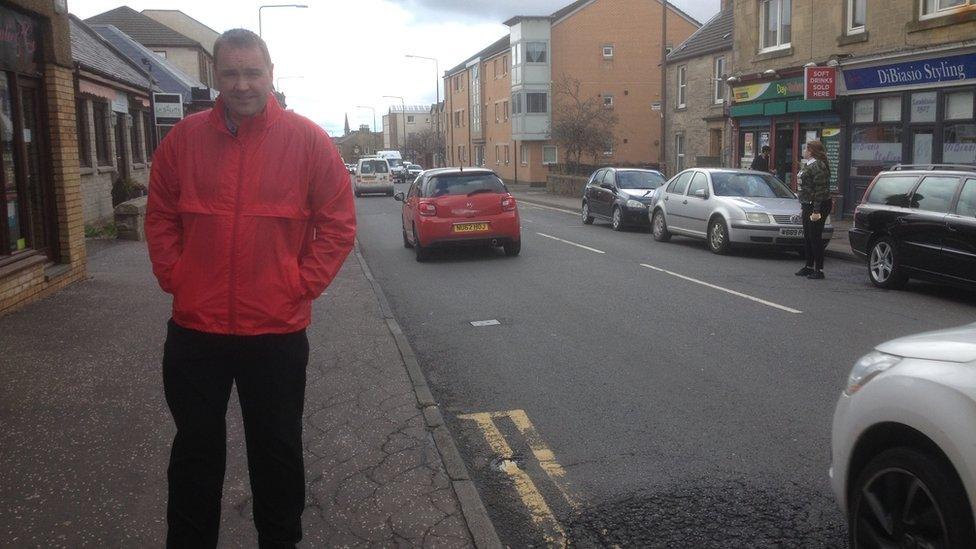
Labour MSP Neil Findlay says SNP promises for public services cannot be met without a bold decision to collect more tax
On Friday, we will know where we are.
If the SNP forms another majority government - which seems very likely - Labour will have another bout of soul-searching.
And if the Conservatives increase their haul of seats, they will start to talk of a confident ideological opposition to the Nationalists.
Only then will the real battle begin - about the consequences of a governing party so dominant it commands the parliament with impunity, about where the real opposition comes from, and about the circumstances in which a second referendum might appeal to the electorate.
It has been a campaign about the unknown. That's one the reasons why everyone wants it to be over.